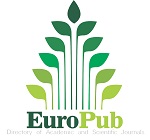Archiving Policy
Purpose
The purpose of this archiving policy is to ensure the long-term preservation and accessibility of the Journal of Urdu Literature and Indigenous Languages (JULIL). JULIL is a valuable resource for scholars and researchers of Urdu literature and indigenous languages, and it is important that its contents are preserved for future generations.
Scope
This policy applies to all published issues of JULIL, including both print and electronic versions.
Archiving Procedures
JULIL will be archived using the following procedures:
- Print issues: All print issues of JULIL will be deposited in the National Library of Pakistan.
- Electronic issues: All electronic issues of JULIL will be deposited in the LOCKSS (Lots of Copies Keep Stuff Safe) system. LOCKSS is a distributed digital preservation system that replicates content across multiple institutions, ensuring that it is preserved even if one institution experiences a failure.
- Metadata: Metadata for all issues of JULIL will be deposited in the Open Archives Initiative (OAI) ArchiveGrid. OAI ArchiveGrid is a service that provides access to metadata for a wide range of digital archives.
Access
All archived issues of JULIL will be freely accessible to the public. Print issues can be accessed at the National Library of Pakistan, and electronic issues can be accessed through the LOCKSS system and the OAI Archive Grid.
Retention
JULIL will retain all archived materials indefinitely.
Review
This policy will be reviewed every five years to ensure that it remains up-to-date.
In addition to the above, JULIL will also consider the following best practices for digital archiving:
- Use archival-quality storage media: JULIL will use archival-quality storage media, such as acid-free paper and optical discs, to store its archived materials.
- Create regular backups: JULIL will create regular backups of its archived materials to protect against data loss.
Migrate archived materials to new formats as needed: JULIL will migrate its archived materials to new formats as needed to ensure that they remain accessible
























